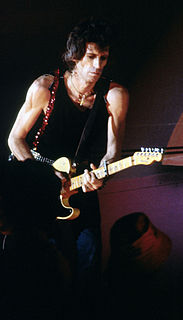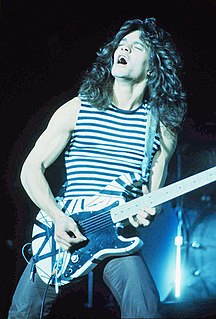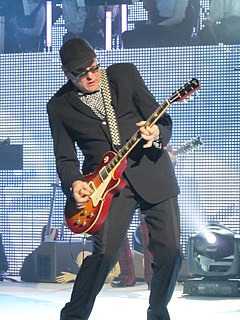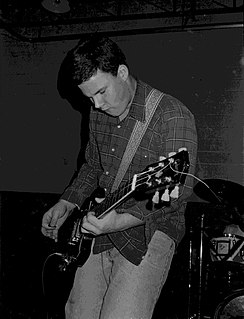A Quote by Keith Richards
Treat each guitar track-and each song-completely different. For example, if I'm using a certain amp and guitar on one track, I'll deliberately use something else for the next tune or overdub.
Related Quotes
I loved the idea of recording. The idea of sound-on-sound-recording captured me as a young kid, and once I realized what it was I had an epiphany. Before I was even playing the guitar, I would create these lists of how I would record things and overdub them, like Led Zeppelin song, 'I could put this guitar on this track...' and so on.
It's one thing having a great song, but I think for me if you take it to the next level... say you had a guitar and a vocal, and the song was amazing but the vocalist wasn't that great and it just was a guitar and vocal acoustic track, switching that to something like an amazing voice singing the exact same song with the instrumentation being really nice and lush or unique in some way and interesting and diverse... I think it's all about the instrumentation and textures in the sound.
I was pillaging a lot of music that had nothing to do with guitar playing, using a lot of strange tunings and voicings and chord structures that aren't really that natural to the guitar; I ended up developing a harmonic palette that's not particularly natural to the guitar because I was always trying to make my guitar sound like something else.
I play guitar all the time, and I'm constantly thinking of songs... Every time I pick up a guitar, I come up with different riffs, all different bands I've been in. Sometimes there is a song or riff that could only belong with Slipknot, and I just can't use it for anything else, regardless of whatever happened.
It's different for every song. But for 'Say Something,' I think it was Chad who had an idea on guitar, and I had an idea on piano for different songs, and we just married them together. We bounce things off each other constantly and kind of massage all these ideas into a three and a half minute pop song.
Chance in music doesn't have to involve the I Ching or rolling dice or throwing yarrow stalks. It can involve an out-of-tune guitar, or other impossible-to-replicate moments of awkwardness - even more so than an awkward, out-of-tune live performance, because there's something incredible about the way that an out-of-tune guitar becomes part of the song on a record. I won't be precious and say it's part of the composition - that's nonsensica l - but chance occurrences are so crucial to what's distinctive. It's the fingerprints all over so many of these recordings.



































